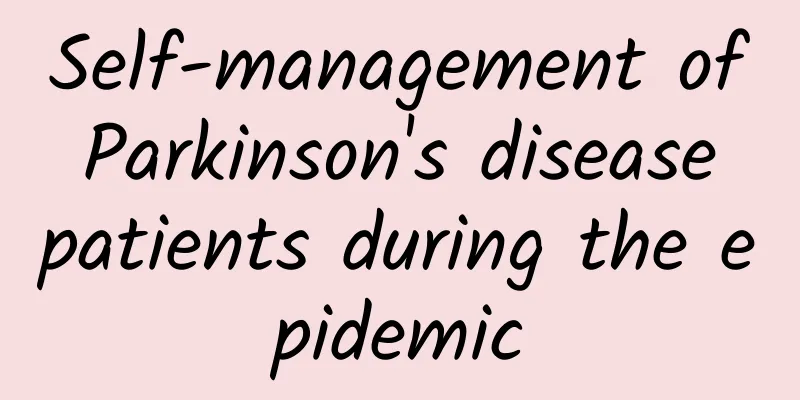What to eat when your aunt comes

|
When girls have their period, they should eat some blood-enriching foods, such as red dates and brown sugar, and eat a light diet. They also need to keep warm and control their emotions to avoid complications caused by menstruation. When menstruation comes, girls should eat more milk or fish to supplement protein, and eat some vegetables to supplement vitamins and iron, and avoid eating raw, cold and spicy foods. What to eat during menstruation What should women eat during menstruation? During menstruation, you must pay attention to strengthening your diet nutrition. It is advisable to eat more foods rich in protein, vitamins, iron and foods that are easy to digest and absorb, such as rice, flour, fish, eggs, meat, red dates, carrots, fresh vegetables, etc. 1. Before menstruation: Supplement the nutrients needed for physiology through diet: B vitamins, as well as vitamin A, vitamin C, and vitamin E. (1) Foods rich in B vitamins: wheat germ, pork, soybeans, peanuts, ham, black rice, animal liver, seaweed, kelp, milk, cereals, bananas, walnuts, etc. (2) Foods rich in vitamin A: animal liver, milk and dairy products, eggs, carrots, broccoli, spinach, lettuce, oranges, apricots, sweet potatoes, etc. (3) Foods rich in vitamin C: leeks, bell peppers, celery, cauliflower, tomatoes, spinach, cabbage, potatoes, snow peas, tangerines, oranges, grapefruits, grapes, strawberries, etc. (4) Foods rich in vitamin E: wheat germ oil, corn oil, peanut oil, sesame oil, walnuts, melon seeds, kiwi fruit, soybeans, spinach, rapeseed, corn, nuts, etc. 2. During menstruation: You can appropriately supplement some warming foods or foods that relieve menstrual pain. (1) Foods that warm the body: Women with a cold constitution can eat more foods that warm the meridians and dispel cold, such as dog meat, mutton, chestnuts, lychees, brown sugar, and ginger. (2) Foods that relieve dysmenorrhea: Women with dysmenorrhea can eat more foods such as spinach, celery, coriander, yam, carrots, grapes, kelp, black fungus, etc., which can promote blood circulation and relieve dysmenorrhea. (3) Others: If you have symptoms such as poor appetite and back pain during your period, you should choose foods that are nutritious, spleen-strengthening, appetite-stimulating, and easily digestible, such as jujube, yam, noodles, and coix seed porridge. 3. After menstruation: After menstruation, especially for those with heavy menstruation, you can supplement protein, iron and minerals appropriately within 1-5 days after the menstruation ends. (1) Foods rich in protein and minerals: mainly include beans (including soybeans, black beans, etc.), milk (including cow's milk, goat's milk, etc.), seafood, animal offal, meat (including pork, beef, mutton, etc.), rice, etc. (2) Foods high in iron: Fish, lean meat, animal liver, animal blood, soybeans, spinach, etc. are rich in iron and have high biological activity and are easily absorbed and utilized by the human body. |
<<: My aunt came a little and then disappeared
>>: What causes lumps in the milk follicle?
Recommend
What to eat for ovarian hyperstimulation
The ovaries are important reproductive organs for...
Can women take laxatives during menstruation?
Many women often suffer from constipation due to ...
Live worms found in milk powder! Is it the powder's fault or the worm's?
As the saying goes, "When spring thunder roa...
Double eyelids with epicanthus
Most of the yellow people's aesthetic views a...
Pituitary prolactin is slightly elevated
When a woman has high levels of prolactin, she ne...
When should rice be added to millet porridge? Should rice be added to millet porridge when the water is boiled or when the water is cold?
We all know that many people cook porridge at hom...
What are the dangers of having too long labia minora?
The styles of female genitals vary. Generally, th...
What is the TCM treatment for amenorrhea?
Among women's menstrual conditions, amenorrhe...
"One drop of blood" can detect tumors! Men must pay attention to this examination
"As long as you live long enough, you will d...
How to have high-quality sleep? Five ways to help you sleep efficiently!
Sleep is very important for everyone. It not only...
Can millet porridge be cooked with glutinous rice? Why should glutinous rice be added to millet porridge?
We all know that there are many ways to cook porr...
One month after medical abortion
Medical abortion is a relatively common method of...
What is the right temperature to cook millet porridge? Is millet porridge nutritious if it is cooked over high heat?
We all know that millet porridge is a common nutr...
Can I put pumpkin in millet porridge? When is the best time to put pumpkin in millet porridge?
We all know that there are many ways to cook mill...
How to treat brown leucorrhea
The appearance of leucorrhea is a normal physiolo...









